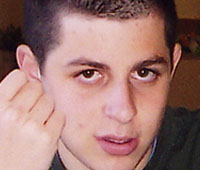Every few months, Israelis undergo an emotionally wrenching experience, with one family in particular experiencing it on a level no other could comprehend. With cruel regularity, the local and international media announce the imminent release of Cpl. Gilad Shalit, captured by Palestinian operatives more than three years ago.
Once again, there is word that negotiations between the Israeli government and Hamas, the Islamic organization that governs Gaza, are on the verge of bringing an end to Shalit's captivity. With the help of German and Egyptian intermediaries, the two sides may soon conduct a trade. Israel could free perhaps as many as 1,000 Palestinian prisoners in exchange for Shalit. Israelis eagerly yearn for his release, but they fear that the cost may prove overwhelming to peace and security.
Shalit has become a member of the family for most Israelis. He had just turned 20 when militants captured him after tunneling across the Gaza-Israel border in June 2006, and killing two of his comrades. As he endures his mysterious purgatory imprisoned in an unknown location, his name is constantly on the lips of his compatriots. His picture adorns random balconies throughout the country. Bumper stickers with his face appear on thousands of Israel cars, and flags calling for his release wave in front of many homes.

